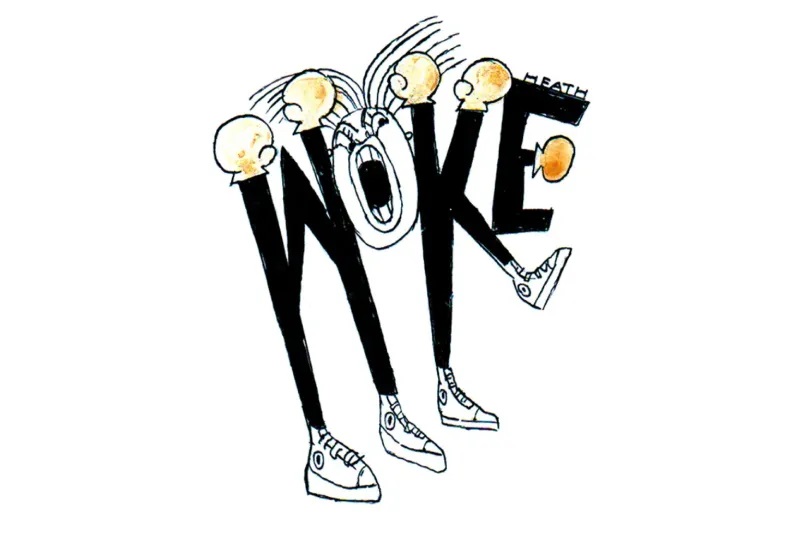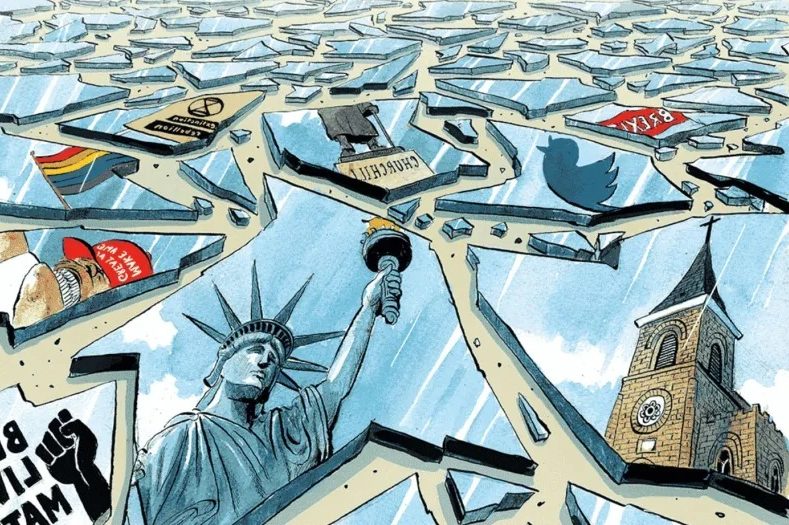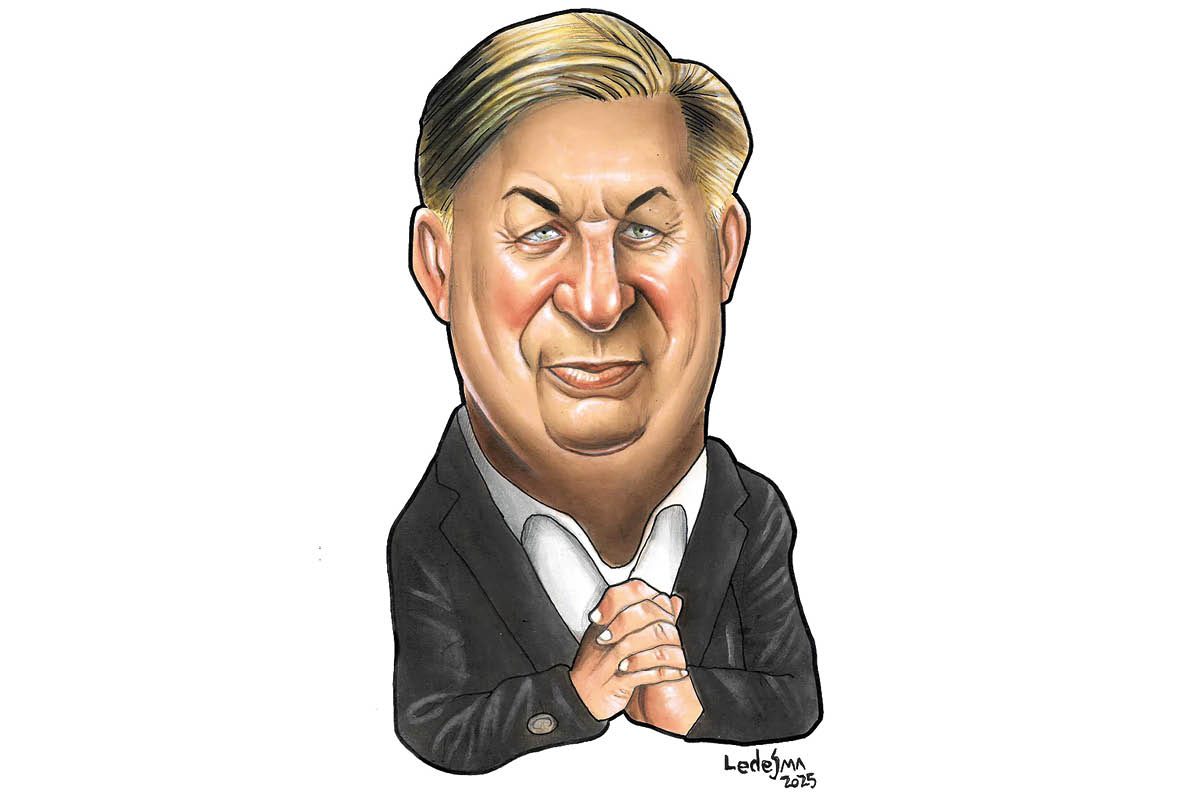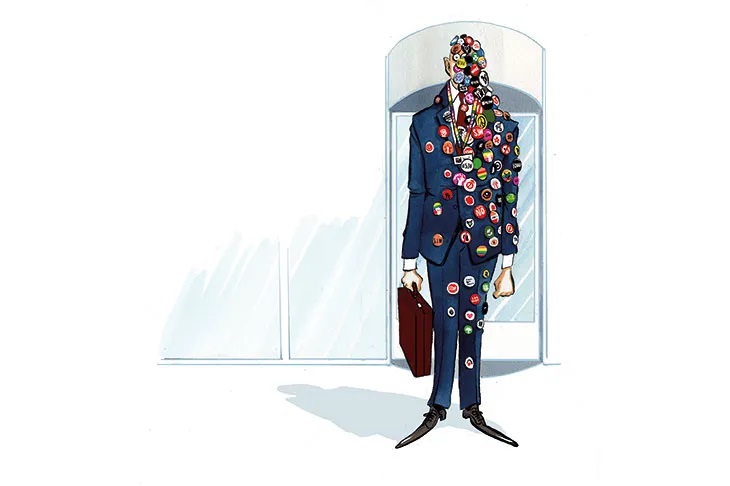It was really only a matter of time before a men’s shaving company began virtue signaling about #MeToo and toxic masculinity. Welcome to the brave new world of ‘woke capital’ – Gillette and their cringeworthy ad is just the latest example. Their short film, which basically plays on familiar denunciations of guys as insufficiently sensitive, is all about showing how much Gillette cares about making the world a better place that is an absolute utopia full of neutered men. Of course, Gillette does not seem to care so much about…treating their workers with basic decency, but…details. Gillette is far from alone in their attempt to showcase their exquisite dignity and compassion. The gauche advertisement is part of a broader pattern that is intensifying as large multinational corporations face mounting critiques about their actual practices, patriotism and monopolistic market strangleholds.
Between Tucker Carlson’s recent excoriation of out-of-touch corporate and political elites who put the free market over family, and the rising fortunes of the social democratic left, large corporations are looking for a safe space where the criticism will fade away. Increasingly, corporate America is deciding to seek a safe space by becoming ‘woke.’ Woke capital refers to advertising and branding that takes a stand on social issues. Businesses focus on showing how much they care and highlight themselves helping the world in some way. Whether it’s gender rights, anti-racism, environmentalism or vague hymns to global unity, advertisers rarely miss a chance to hit audiences with lines that would be rejected by Hallmark for being too corny.
From Silicon Valley to Wall Street, an increasing number of corporations are choosing to prioritize feel-good progressive slogans and activism over traditional advertising strategies that highlight the value or features of a product or service.
Businesses that want to sell you something have many tools at their disposal. Certainly it’s vital that the consumer has — or develops — a demand for the product or service, but it’s also of great importance that you as the consumer feel a strong attachment to the company’s brand and its ethos. Optimally, the consumer does not merely want what is being sold, but also craves feeling of belonging and social validation that purportedly comes with making that certain buying decision. The approaches and styles used in advertising and branding tell us an enormous amount about the society they’re being delivered to and the story those in power want to reinforce and create in the populace. Some variation of ‘you are a good person if you like our brand’ is now the apparent go-to tactic in marketing. Why? Conservatives spend money, too, right? Why are many large companies in the highest-tech industries catering so predominantly to the cultural left?
Peering at the advertising campaigns of major companies and organizations today one is likely to notice various forms of woke capital messaging and blatant virtue signaling at every turn. There’s ‘green-washing,’ which hypes how environmentally-conscious some new product or service is, ‘woke-washing,’ that’s all about how corporation X wants a unified world of peace and justice, and, often plenty of ‘pink-washing’ about how much the company devotedly supports LGBT rights. During LGBT Pride Month hundreds of major corporations’ logos drip with rainbows (even Raytheon takes part in Pride marches), and the Toyota Prius runs as much on self-righteousness as electricity.
As Matthew Schmitz wrote earlier this year in First Things magazine, large firms like Goldman Sachs, McKinsey, Bain and Google were among 379 corporations who submitted an amicus brief in Obergefell v. Hodges in support of same-sex marriage. They argued that it was in their interest to have same-sex marriage in order to ‘improve employee morale and productivity.’ Interestingly, when McKinsey had a business partner who was kidnapped and tortured in Saudi Arabia they said he didn’t work for them anymore and walked away like cowards, so one could be forgiven for doubting the courage of their convictions. There’s a similarly checkered history for Goldman Sachs, currently embroiled in the massive 1MDB scandal in Malaysia, and heavily implicated in the 2008 financial meltdown. What is motivating these large, often corrupt organizations to pursue woke capital as a business strategy?
Politically, the ultra-rich still favor the Republican party, but the increase of very wealthy families and individuals giving to the Democrats is significant. Anti-capitalist sentiment is on the rise on the social democratic left and some areas of the populist pro-Trump right. Many companies are beginning to see the benefits of softening their public image with progressive messaging in order to keep the wolves at bay. If they face real resistance from the left they can always point to their latest woke anti-Trump messaging about unity or offer a new community-funding project; if corporations face real resistance from the right they can gin up a media and cultural furor at conservatives for being racist, sexist mean people who hate ‘progress’ and would dare to sully the noble heart of their corporate mission (although such Kabuki theater doesn’t always convince savvy observers).
Ross Douthat has argued that woke capital is essentially a gambit whereby corporations will virtue signal and pay homage to the cultural left in return for taking less flack when they support fiscally elitist policies and protect their market power. Douthat humorously dubs this ‘the Peace of Palo Alto,’ a kind of economic-cultural truce between the progressive culture and corporate aims. If Republicans are in charge corporations get the tax cuts they want, if Democrats take power they will go easy as long as companies put out nice Pride messages and talk about helping the environment. As long as voters have no real third alternative and pro-elite fiscal and regulatory policy is maintained by each party, big business is in luck.
As Douthat notes, while the Peace of Palo Alto may satisfy those who benefit, it won’t function for the majority of the left or right as ‘it confirms the blue-collar suspicion that liberalism is no longer organized around working-class economic interests, and it encourages cultural conservatives in their feeling of general besiegement, their sense that all the major institutions of American life, corporate as well as intellectual and cultural, are arrayed against their mores and values and traditions.’
Conservative economic libertarianism and tax policy has ultimately helped a ruling class emerge who tend to be non-religious and socially progressive. This elite has reaped enormous benefits from free trade, outsourcing and globalization and it’s in their interest in terms of messaging and policy to position themselves as being on the cutting edge of social change and ‘breaking down borders,’ both literally and figuratively. It’s in the inherent interest of many multinational corporations to promote openness and globalization as moral and economic goods, in order to gloss over the mounting criticism of what the actual policies they support are causing, especially in developed nations.
An important key to woke capital is to look at how the most profitable industries have been shifting — away from manufacturing and blue collar work and into IT, high-tech industries and international financial conglomerates. Silicon Valley is a major bastion of woke high-handedness. Tech billionaires want to secure their place at the top of the food chain while still making sure people have nice racially-diverse emojis to express themselves with. Apple can tell you all about its amazingly low carbon footprint just don’t ask about the amount of greenhouse gas pumped out by their production facilities in China. And maybe also don’t mention how they treat workers abroad.
In some cases the ideological orientation of a product is inherent. For example, the company Tuck Buddies sells kids underwear to help trans boys hide their penises, so clearly they would align with a certain point of view about childhood transgenderism and other related topics. When Ben & Jerry’s makes a Resistance flavor of ice cream it simply reinforces their already strong embrace of progressive causes and activism. Incidentally, Ben & Jerry’s is now owned by British-Dutch mega corporation Unilever, which has been recommended for prosecution for exploiting poor workers in the developing world, fined for price-fixing in the EU , and nabbed for illegally destroying rainforests in Indonesia. How woke is that? #Resist!
Mastercard wants you to know that ‘cash is the enemy of inclusion,’ and that good people who care about developing countries and alleviating poverty want everyone to have a credit card. Didn’t you know? Mastercard is practically a charity who just wants everyone to be looked after! In fact, being pro-cash makes you an ‘enemy of the future,’ according to Mastercard’s Michael Miebach. Subtle rhetoric that would make Stalin blush. Indeed, much of the acceleration of messaging about global togetherness, diversity, equality and such topics is also related to the view from many corporations that the largest markets of the future will be non-Western and that it’s imperative to promote global linkage and universalize technology to expand current monopolies tenfold and bring everyone into the new ‘connected’ future.
Woke capital works in tandem with media and other institutions to ensure its narrative holds power and that it is always perceived as the good guy. There’s cognitive dissonance in that elitist capital, the oft opponent of the progressive left, is now in lockstep with its social agendas even as it continues the neoliberal economic policies that exploit the Global South and perpetuate poverty and war, but there are very entrenched liberal cultural and economic forces that want to keep blurring that line and keeping that dissonance ignored as much as possible.
Businesses who stay out of the woke realm and stick to old ways of doing things are not simply portrayed in the media and within corporate culture as mistaken or behind the times: they are sinful and they must repent. For one small example look at the attempt to mass boycott advertisers sponsoring Tucker Carlson’s Fox News show. At best these sponsors are seen as oblivious dunces, at worst they are evil, racist sinners. Woke capital is an ongoing passion play of secular liberal piety. Technology is the Savior, and education to ensure right-think and right-speak is the Scripture. Woke capital is a farce in which some of the greediest, most exploitative companies on the face of the planet, indirectly tied to the most powerful governments on the planet such as that of the United States, hire highly-skilled propagandists to make their consumers feel self-righteous and those who don’t share every progressive piety on the list feel irrelevant. It’s the high-tech evolution of entitled NIMBYism, glossed over with feel-good slogans, a savvy attention for the emotional identity topics of the week and selective stand-taking when it suits the interests of the corporate narrative, the bottom line, or (even better) both.
As public relations and propaganda expert Edward Bernays put it a century ago: ‘We are governed, our minds are molded, our tastes formed, our ideas suggested, largely by men we have never heard of.’
Bernays himself held to a kind of utopian belief in democracy and the use of propaganda to mold necessary and positive developments. In fact he believed that ‘the only propaganda which will ever tend to weaken itself as the world becomes more sophisticated and intelligent, is propaganda that is untrue or unsocial.’
Bernays’s imagined future of sophistication and intelligence may be fairly met with some skepticism. But then again, if your new cell phone battery invests five percent of all sales in a cool-looking environmental project to plant a tree a week in clear-cut forests, you can put aside thoughts of child miners in the Congo harvesting the minerals to make the battery. Go ahead and scroll through Twitter to retweet Bank of America’s support for gender equality. Righteous consumers are wanted here. It’s a woke world.

























